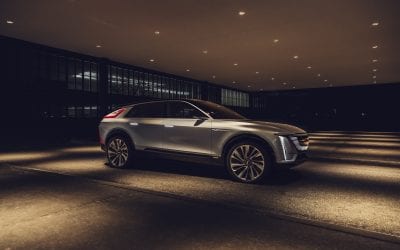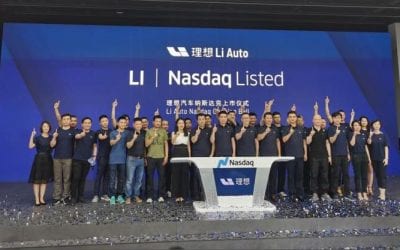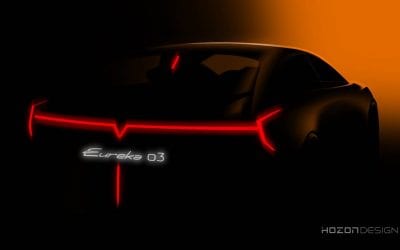DMV California list of permits for testing autonomous vehicles
The list is up to date as on 6 March 2018. Read our analysis of the 2016 disengagements reports as filed in accordance with the Californian DMV requirements to see how successful the various self-driving programs were and how many cars they had testing their systems.
- Volkswagen Group of America – Automaker
- Mercedes Benz – Automaker
- Google – Tech company
- Delphi Automotive – Auto parts company from Kent, UK
- Tesla Motors – Tech/Auto/Energy company
- Bosch – Auto parts company
- Nissan – Automaker
- GM Cruise LLC – Tech company bought by the automaker
- BMW -Automaker
- Honda – Automaker
- Ford – Automaker
- Zoox, Inc. – Robotics company pioneering MaaS (Mobility as a Service) with autonomous tech
- Drive.ai, Inc. – Tech start-up from Stanford University’s Artificial Intelligence Lab
- Baidu USA LLC
- Valeo North America, Inc.
- NIO USA, Inc.
- Telenav, Inc.
- NVIDIA Corporation
- AutoX Technologies Inc
- Subaru
- Udacity, Inc
- Navya Inc.
- Renovo.auto
- UATC LLC (Uber)
- PlusAi Inc
- Nuro, Inc
- CarOne LLC
- Apple Inc.
- Bauer’s Intelligent Transportation
- Pony.AI
- TuSimple
- Jingchi Corp
- SAIC Innovation Center, LLC
- Almotive Inc
- Aurora Innovation
- Nullmax
- Samsung Electronics
- Continental Automotive Systems Inc
- Voyage
- CYNGN, Inc
- Roadstar.Ai
- Changan Automobile
- Lyft, Inc.
- Phantom AI
- Qualcomm Technologies, Inc.
- aiPod, Inc.
- SF Motors Inc.
- Toyota Research Institute
- Apex.Al
- Intel Corp
- Ambarella Corporation
THE CALIFORNIA SELF-DRIVING PROGRAM IN THE NEWS
Week 35 2017 - Samsung to start testing self-driving tech on Californian public roads
Week 24 2017 - TuSimple gets permit to test self-driving trucks
 In related news the California DMV permitted self-driving truck start-up, TuSimple, to test its artificial intelligence (AI)-based Level 4 autonomous driving system on 420-miles of public roads from San Diego to Tucson in Arizona.
In related news the California DMV permitted self-driving truck start-up, TuSimple, to test its artificial intelligence (AI)-based Level 4 autonomous driving system on 420-miles of public roads from San Diego to Tucson in Arizona.
Week 5 2017 - WYAMO's (Google) disengagement performance improves from 2015
The California Department of Motor Vehicles released it’s 2016 Autonomous Vehicle Disengagement report this week. We reported earlier that a total of 20 companies were authorized to test the autonomous technology on the State’s public roads by the end of 2016. The Disengagement report reflects the number of events where a driver essentially has to take over from the vehicle’s autonomous mode to either prevent a traffic incident or where it fails. Alphabet’s autonomous vehicle program moved from Google to a stand-alone company Waymo, revealed its 2016 scoring in a blog post by it’s Head of self-driving technology. Waymo showed a marked improvement from its 2015 safety-related disengages of 0.8 (341) disengages per 1000 miles to 0.2 (124) in 2016.
Week 52 2016 - Ford Debuts its second generation autonomous vehicle
Ford debuted its next-generation Fusion Hybrid Autonomous development vehicle this week. The second generation of the vehicle sports more production ready controls and LiDar sensors on top of an improved computer hardware platform. Improved field of vision on the sensors allowed Ford to have only two sensors as opposed to four in the first generation. The second generation follows the first, introduced three years ago. The company aims to have an SAE Level 4-capable vehicle commercially available by 2021 for ride-hailing and sharing purposes. Ford will also expand its test fleet, currently operational only in California to its home state, Michigan.
Watch the video for a look into Ford’s Autonomous Assembly Facility.
Week 51 2016 - Waymo (Google) and Fiat Chrysler reveals their Chrysler Pacifica test vehicle

Week 51 2016 - Uber forced to cancel its self-driving pilot in San Francisco
This week Uber was forced to cancel its self-driving pilot in San Francisco, its hometown. Although regulators are in possession of footage showing an Uber pilot vehicle running a red light, barely missing a pedestrian, a claim the company contest that it was driver error and not the software, the ultimate decision was based on the company not following proper permitting procedures. Although the Californian DMV offered Uber assistance and a clear road to permitting the company and State could not agree on workable rules around Uber’s demand for its technology to be classified as SAE Level 3 automation. It is not the end of Uber’s efforts though as it is piloting retrofitted Volvo and Ford Focus vehicles in Pittsburgh.
Week 50 2016 - NVIDIA becomes the 20th company to test self-driving tech on California roads
Twenty companies now have permits to test autonomous vehicle on public roads in California; the latest is NVIDIA, the supplier of Tesla’s autopilot chip was granted a permit earlier this week, with images of the test cars already appearing on various web portals, social media, and forums. The list is available here.
Top 5 EV News Week 32 2020
Top 5 EV News Week 32 2020 | Cadillac Lyriq unveiled. Yet another Chinese EV startup IPO. Three new EV models launched this week.
Top 5 EV News Week 31 2020
Top 5 EV News Week 31 2020 | Successful IPO for CHJ Auto, Kandi finally enters the USA, Mitsubishi pays the cost for failing EV strategy.
Top 5 EV News Week 30 2020
Top 5 EV News Week 30 2020 | Chengdu Auto Show, Hozon Neta IPO, VW invest in China, eVito Tourer for sale






